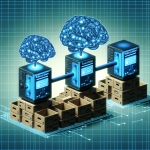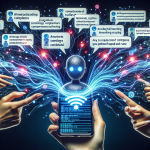Introduction: The Evolution of Loyalty Programs
Loyalty programs have come a long way since the days of punch cards and cut-out coupons. Today, businesses across sectors—from retail and hospitality to finance and e-commerce—leverage sophisticated digital platforms to engage and retain customers. At the heart of this transformation is Artificial Intelligence (AI), a force reshaping how brands understand consumer behavior and personalize experiences. As the battle for customer retention intensifies, AI-enabled personalization in loyalty programs is becoming a game changer.
The Role of AI in Modern Loyalty Programs
AI brings a suite of powerful tools to the loyalty landscape, including machine learning algorithms, natural language processing, and data analytics. These tools help businesses sift through vast amounts of data to identify patterns, predict behaviors, and tailor rewards and messaging with pinpoint accuracy.
1. Data-Driven Insights
Every customer interaction—be it an online purchase, a social media comment, or an in-store visit—produces valuable data. AI analyzes this data to generate actionable insights. For instance, understanding what time of year a shopper is likely to splurge, which products they prefer, and what channels they use can dramatically tailor their loyalty experience.
2. Real-Time Personalization
Gone are the days of generic discount coupons. AI enables real-time personalization by dynamically adapting rewards, offers, and communication based on customer behavior. This means that a customer browsing athletic wear might instantly receive loyalty points redeemable on sports gear during checkout, enhancing both conversion and satisfaction.
Personalization Strategies Powered by AI
The strength of AI lies in its ability to go beyond one-size-fits-all offers and provide bespoke experiences that feel intuitive and human.
Behavioral Segmentation
Traditional segmentation groups users by demographics or purchase history. AI-based segmentation adds another layer by considering behavioral, contextual, and even emotional data to create micro-segments. This allows brands to serve customized incentives that resonate with very specific customer subsets.
Predictive Analytics
AI can forecast customer actions before they occur. For instance, it can flag users who are likely to abandon their loyalty program and initiate win-back campaigns. Predictive analytics can also determine the best types of rewards (e.g., discounts vs. exclusive access) that would optimize customer lifetime value.
Automated Engagement
AI powers chatbots and virtual assistants that offer 24/7 support within loyalty platforms. These AI agents can handle queries, recommend rewards, and even surprise users with spontaneous benefits based on real-time events—such as a birthday or a significant purchase milestone.
Maximizing Retention Through Emotional Loyalty
While transactional loyalty (earning points, redeeming rewards) is critical, emotional loyalty cements long-term relationships. AI helps brands foster trust and connection by understanding not just what customers buy, but why they buy.
Contextual Recommendations
By learning from an individual’s interactions, AI can offer more than just products—it can offer context. Someone buying tea for a self-care night might appreciate recommendations for music playlists, bath salts, or a mindfulness app subscription. These experiential touches generate emotional resonance.
Sentiment Analysis
AI-driven sentiment analysis monitors customer reviews, social media content, and support interactions to gauge satisfaction and detect opportunities for meaningful engagement. This proactive approach lets brands address concerns and delight customers in unexpected ways.
Challenges and Ethical Considerations
As powerful as AI is, it doesn’t come without challenges. Data privacy remains a central concern. Brands must be transparent about data collection and usage, ensuring ethical standards are met. Additionally, excessive personalization can sometimes feel intrusive, making it crucial to strike the right balance.
The Future of Loyalty Programs
AI is not just enhancing loyalty programs—it is redefining them. Future systems may involve blockchain for secure point tracking, augmented reality experiences, and hyper-personalized ecosystems where loyalty is earned not just from purchases, but from brand interactions, user advocacy, and sustainable behaviors.
Conclusion: Personalization as a Strategic Imperative
In a crowded marketplace where acquiring new customers is costly, AI-led personalization in loyalty programs offers a strategic edge. By delivering individualized experiences that resonate both logically and emotionally, businesses can significantly boost retention, brand affinity, and customer lifetime value. The key lies in responsibly using AI to turn every customer touchpoint into an opportunity for meaningful engagement.





